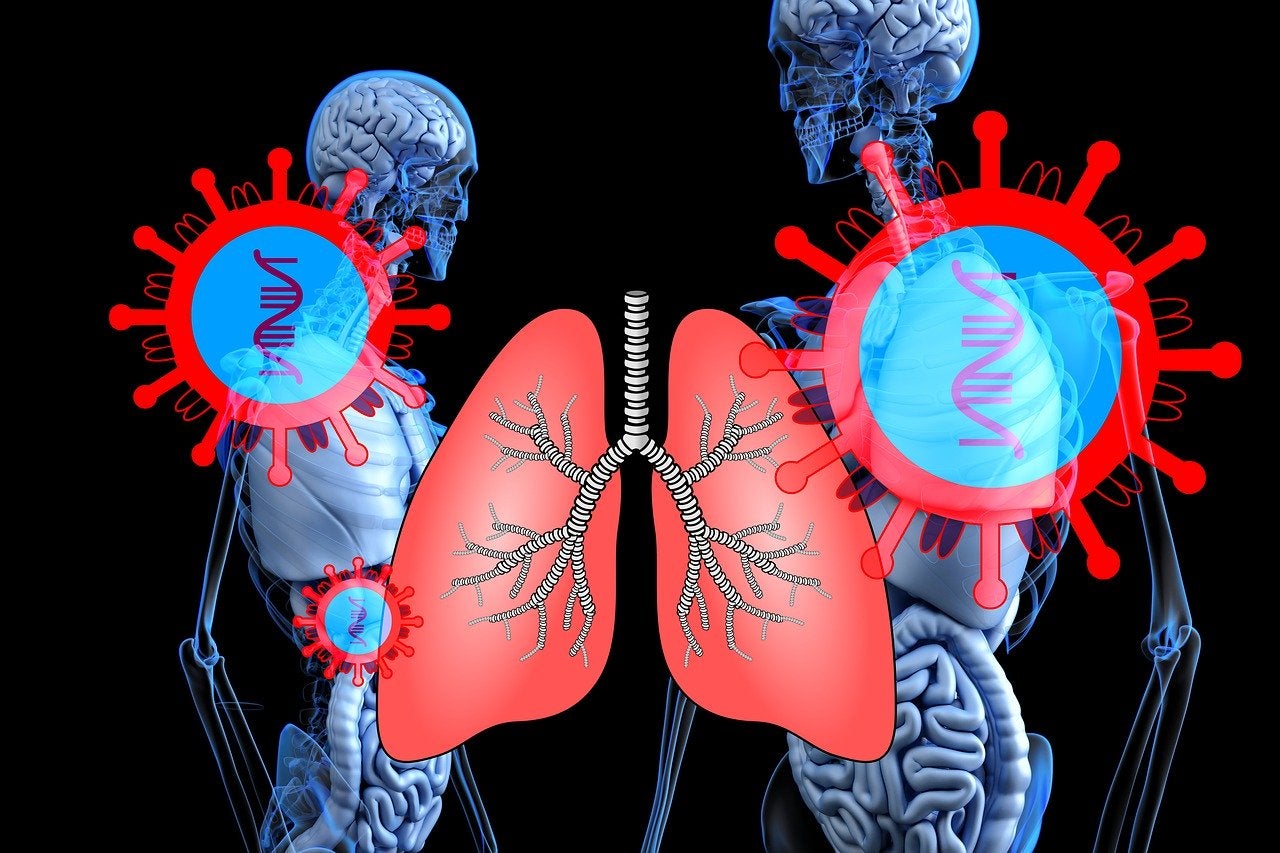
In its attempt to provide treatments for Covid-19 patients, American biopharma firm FibroGen has chosen to tackle the infection slightly differently to many of its peers in the industry.
Antivirals such as Gilead’s remdesivir and anti-inflammatory medicines like the chloroquine drug currently being taken by US president Donald Trump have drawn much of the mainstream media attention regarding coronavirus treatments thus far.

Discover B2B Marketing That Performs
Combine business intelligence and editorial excellence to reach engaged professionals across 36 leading media platforms.
But FibroGen is instead trying to treat the symptoms of pneumonia — often seen in severely ill Covid-19 patients — using its antibody drug pamrevlumab.
With FibroGen recently announcing the first patients have been enrolled in clinical trials for pamrevlumab in Italy, we take a closer look at the company, and its response to the global pandemic.
FibroGen
San Francisco-based biopharma and biotech firm FibroGen was founded in 1993 by American businessman Thomas Neff.

US Tariffs are shifting - will you react or anticipate?
Don’t let policy changes catch you off guard. Stay proactive with real-time data and expert analysis.
By GlobalDataBetween 2005 and 2016 the company received investments totalling $188m across four separate funding rounds, and now has a net worth of $3.32bn, according to market analyst Macrotrends, and employs more than 500 people.
Neff, who was also the company’s CEO and chairman at the time, passed away in August 2019, with the company’s leading drug candidate, roxadustat, on the verge of gaining approval for treating anaemia in chronic kidney disease (CKD) patients in China.
Having previously spent 27 years at US healthcare giant Eli Lilly, Peruvian businessman Enrique Conterno was appointed as FibroGen’s new CEO at the beginning of 2020.
Roxadustat has since received regulatory approval for use in both China and Japan, and is currently undergoing Phase III clinical development in the US and Europe. FibroGen partnered with pharma heavyweights AstraZeneca and Astellas to develop the drug.
However, it’s the other major drug candidate in the company’s product portfolio that has moved into the limelight over the past few days.
What is pamrevlumab?
Pamrevlumab is a fully human monoclonal antibody used to target connective tissue growth factor (CTGF).
CTGF is a protein that plays an important role in several biological processes in the human body — most notably fibrosis, which is responsible for pathological wound healing, tissue remodelling and, ultimately, the formation of permanent scar tissue.
CTGF is also a common factor in chronic fibrotic and proliferative disorders – diseases characterised by the excessive growth of fibrous tissue — that can lead to organ dysfunction and failure throughout the body.
It can be the cause of several cancers due to the promotion of tumour growth as well.
By inhibiting the activity of CTGF, however, FibroGen says pamrevlumab can be used to treat an array of such disorders.
Pamrevlumab is currently in Phase III clinical studies for the treatment of idiopathic pulmonary fibrosis (IPF), as well as Phase III studies for pancreatic cancer, and Phase II studies for Duchenne muscular dystrophy (DMD).
In a statement regarding pamrevlumab on its website, FibroGen says that, across all clinical studies to date, the drug has “consistently demonstrated a good safety and tolerability profile”.
FibroGen has also stated that, due to its “ample drug supply”, neither the launch of roxadustat nor the ongoing pamrevlumab trials will be seriously affected by the coronavirus crisis, and the company remains confident it can achieve its stated goals regarding these products.
Pamrevlumab as a Covid-19 drug
FibroGen announced the first patients had been enrolled in an open-label, randomised, parallel-arm study to investigate the efficacy and safety of pamrevlumab in treating severely ill, hospitalised coronavirus patients in Italy on 8 June.
The main goal in these Phase II/III clinical trials is to assess pamrevlumab’s impact on blood oxygenation levels in Covid-19 patients.
The study will involve an estimated 68 patients and, at the discretion of lead investigator Professor Luca Richeldi, a subgroup of these patients may continue to receive treatment for up to 12 weeks.
Following the announcement, Dr Elias Kouchakji, the firm’s senior vice president of clinical development, drug safety, and pharmacovigilance, said interstitial pneumonia is present in the majority of people hospitalised with the virus.
This can lead to vascular leakage, resulting in a potentially fatal pulmonary oedema in which fluid leaks out of the blood vessels and into the lungs.
But, by preventing the activity of CTGF that is thought to be involved in this process, the hope is that pamrevlumab could reverse this oedema, improve oxygenation in patients with coronavirus-induced pneumonia, and reduce mortality rates due to the virus.
FibroGen also recently announced plans for two additional randomised, double-blind, placebo-controlled Phase II studies involving pamrevlumab as a potential Covid-19 treatment in the US.
The first of these has been approved by the US Food and Drug Administration (FDA), and will assess the safety and efficacy of pamrevlumab in 130 hospitalised patients.
The potential for the second trial is currently being discussed with the FDA, and is expected to assess the longer-term efficacy and safety of the drug in people who have recovered, or are recovering from Covid-19, with evidence of interstitial lung disease.
In a FibroGen statement on 8 June, CEO Conterno said: “Given our expertise in CTGF biology and its potential application in lung disease, we have a unique approach to the treatment of patients suffering from severe pulmonary involvement of Covid-19.
“In these devastating times, we are grateful for the collaboration of health authorities, healthcare providers and patients in enabling the conduct of these trials.”





